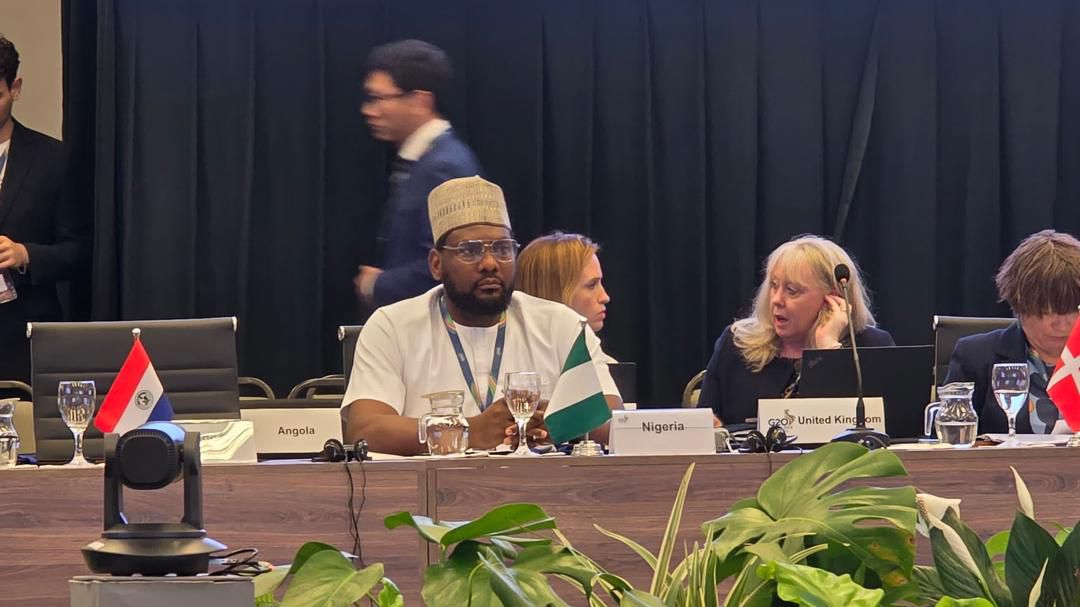National Grid Collapse: ECN DG proposes decentralising electricity supply with renewable energy sources
The Energy Commission of Nigeria (ECN) has that the only sustainable solution for strengthening Nigeria’s power sector lies in adopting solar and other renewable energy sources. The ECN Director-General, Dr Mustapha Abdullahi, made the call in Abuja in a statement. The statement signed by the commission’s spokesperson, Mrs Kelechi N. Mela, said Dr. Abdullahi, a […]

img 20241101 wa0008
The Energy Commission of Nigeria (ECN) has that the only sustainable solution for strengthening Nigeria’s power sector lies in adopting solar and other renewable energy sources.
The ECN Director-General, Dr Mustapha Abdullahi, made the call in Abuja in a statement.
The statement signed by the commission’s spokesperson, Mrs Kelechi N. Mela, said Dr. Abdullahi, a strong advocate for renewable energy, has championed this approach as a way to stabilise the nation’s energy system.
“On numerous platforms, both within and outside Nigeria, Dr Abdullahi has promoted this energy proposal as a more reliable alternative for the country.
“Taking inspiration from developed countries like Japan, the United States, China, and Germany, Dr Abdullahi believes that incorporating renewable energy into Nigeria’s power framework will enhance stability and sustainability, addressing the issues caused by frequent power failures,” the statement said.
Dr. Abdullahi said that the push for renewable energy coincides with efforts to decentralise electricity generation in Nigeria, which aims to address the nation’s chronic power supply issues resulting from repeated national grid collapses.
In an exclusive interview on the NTA Weekend File on Saturday, October 12, 2024, Abdullahi discussed ‘Harnessing Renewable Energy in Nigeria: Strategies for Effective Supervision and Coordination’. He highlighted the global shift from fossil fuels to greener sources, now known as “Energy Transition”.
Also at the recent G20 working group in Brazil, Abdullahi reiterated Africa’s minimal contribution to greenhouse gas emissions despite severe climate change impacts. Nigeria and other African nations received a positive response from G20 leaders, who pledged climate finance support. This global recognition of Nigeria’s renewable energy initiatives highlights their significance and potential, making us all proud of our country’s efforts.
Dr Abdullahi also spoke on the significance of energy in President Bola Tinubu’s Renewed Hope Agenda, underlining its role in catalysing Nigeria’s economic development as global energy transitions drive growth.
He shared this perspective during his presentation, “Gazetting Nigeria’s Energy Vision,” at the Nigeria Energy Summit in Lagos, held from October 15 to 17. Organized by stakeholders in Nigeria’s energy sector, the summit explored the nation’s future on energy sustainability.
The ECN aims to triple renewable energy generation by domesticating and localising technologies like solar panels, making energy more accessible nationwide. With Nigeria’s abundant lithium resources, the commission also encourages investors to establish lithium battery factories within the country.
Dr Abdullahi’s initiative to integrate solar and other renewable sources into Nigeria’s power system is a key priority and central to the commission’s vision under his administration.
The Director-General’s agenda for transformative change in Nigeria’s energy sector is closely aligned with the Renewed Hope Agenda and the electricity decentralisation plan championed by President Bola Ahmed Tinubu.
This vision positions energy as a fundamental driver of economic growth and development, a priority that remains crucial to the President’s agenda.
